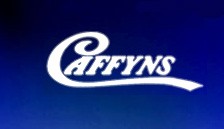Caffyns has outlined seven key areas that it must focus on going forward after it revealed today that it was operating at a loss.
The group posted an operting loss in its half year interim results ended September 30, 2008, of £1.6m in comparison to a £2.3m profit last year.
Caffyns also revealed a £2.1 million loss before taxation and exceptional items compared to a £759,000 profit over the same half year period.
Turnover was down from £95m to £84.6m.
In order to tackle the market conditions, the Caffyns board has announced seven key areas which it will now be focussing on to return to profit.
• Improve sales performance through concentrating on lower-priced and fuel-efficient vehicles together with additional management focus on sales of used vehicles.
• Enhance margins through marketing innovations and improved use of internet communications, especially in higher margin servicing and bodyshop operations.
• Reduce costs through closures of under-performing branches and reductions in staff numbers generally. However, Caffyns has not outlined how many it is expecting to close.
• Reduce stocks and increase stock turnover, especially of used vehicles, strengthening our monthly write-down policies on used cars and demonstrator stocks to remain competitive.
• Reduce future capital expenditure to essential work only.
• Allocate franchises to facilities to gain maximum profitability.
• Negotiate with manufacturers to set lower sales and bonus targets.
Caffyns has closed two loss-making satellite dealerships in Brighton and Tonbridge with customers referred to its main dealerships. The cost of closing the two dealerships is £429,000 which has been charged as an exceptional cost in the half year.
The group has made a 10% reduction in its employers compared to the start of this financial year and has incurred redundancy costs of £144,000 in the half year which have not been treated as exceptional.
Simon Caffyn, chief executive of Caffyns, said: “The outlook is for trading to continue to be challenging for the remainder of 2008, well into 2009 and possibly beyond. The actions we have taken, combined with our relatively low gearing, place us in a stronger position to deal with recessionary conditions."
“Although we restricted the fall in our new car unit sales to 14.4% and marginally increased used car sales, both new and used car margins have been seriously affected.”
He said the reduction in new car sales meant that manufacturers’ targets had not been met, and in turn bonuses had fallen throughout the group.
Caffyn said: “Falls in market prices have required us to reduce the prices we use to value used cars and demonstrators. This reduced used car trading profits by approximately £1.1m in the period.
“On the other hand, markets for servicing and parts have held up relatively well with about two thirds of our gross profit generated from these higher margin activities.”
Caffyns has now reintroduced its fixed-price Flexi servicing plan for vehicles over three years old for customers in order to retain existing customers and attract new drivers of older cars.
The group has also seen an increase in new and used car funding through manufacturer and independent finance in reaction to consumers finding funding less easy to arrange.
Caffyns has redesigned its website in order to drive its menu priced aftersales and market key areas of the business while “reducing reliance on traditional and expensive marketing media”.
Caffyn said: “Costs have been reduced throughout the group, largely by reducing staffing levels, and we continue to review closely the underperforming businesses, looking to improve trading margins whilst further reducing costs.”
During the period to September, Caffyns added a Ford franchise to its Volvo dealership in Hove, which is now seeing “a considerable improvement in the trading”.
Caffyn said: “We are working closely with manufacturers to set lower sales targets and reduce working capital requirements and the costs associated with stocks.
“It is encouraging to see pragmatic approaches to these issues by all of the manufacturers of the franchises that we represent. With the expectation of a decline in this year's new car market, and with further falls forecast in 2009, new car targets are being reduced. Whilst this clearly impacts profit opportunities it does enable us to achieve the lower targets and hence earn manufacturers' bonuses.”














Login to comment
Comments
No comments have been made yet.